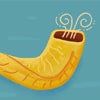I used to be the apple of my father’s eye. For nearly the first five years of my life, he called me his sunshine and I was the center of his life. My father was a Holocaust survivor, having entered the gates of Auschwitz at the age of 15, seeing his beloved mother ripped away from him along with his brothers and sisters, nieces and nephews. With many miracles, he survived and slowly started a new life as a scarred young man on American soil.
He married my mother—a war baby, may she live and be well—later in life, and they began to build their own family with hope and joy and healing. I was born first and named for his holy mother, whose last words to her son were, “Never forget that you are a Jew and where you come from.” My brother, named after my mother’s father, who was also murdered in the Holocaust, joined our family shortly after.
And then, on the first night of Rosh Hashanah, during a visit to Hungary, my father died from a sudden heart attack.
My mother was left with two young children to raise, which she did with great love and devotion. It wasn’t easy, and now as a mother myself I am in awe of how she managed.
Left with very few memories of my father, growing up was painful. Trying to figure out the stuff that dads teach their daughters was difficult, to say the least. Over the years, I have slowly pieced together my early childhood. It is constantly evolving as I grow older, as does my grieving.
Through the support of my husband and some very special friends who have also suffered parental loss, I have come to an acceptance that gives me consolation, and I finally felt ready to go back to the place I last remember my father alive, and the only memory I have, right before he died.
I have been to Hungary many times—as a child to visit my mother’s mother, and then with my own family to introduce my children to their great-grandmother. Now, I felt that I needed to go to my father’s kever (gravesite) in Budapest.
I invited my cousin to join me. She was ecstatic, as she had never had the opportunity to visit our family roots, and now here was her chance, with someone who knew Budapest and spoke Hungarian. She said she would go wherever I chose, as long as she had the opportunity to visit her grandfather’s kever (my maternal grandmother’s brother).

With that settled, I flew in from Baltimore and she from Israel. We met at the famous Hanna restaurant, thrilled to see each other and ready for an adventure sans children and husbands.
We spent the first day visiting the kevarim. For the second day, I found a tour guide who gave us a fascinating tour of the Buda side (Budapest is really two cities divided by the Danube River). I had always thought Pest was where all the Jewish action was, but it turns out the Buda side contains its own Jewish history, along with the castle and all kinds of architectural beauty.
In preparation for the trip, I asked the tour guide if she could locate the retirement home where my parents prayed and we had the festive meal that fateful Rosh Hashanah. She knew exactly what I was talking about. She picked us up from a restaurant on the Pest side and we crossed the famous Chain Bridge over to Buda. We saw the hospital where my mother was born and then evicted, as my grandmother had no money to pay the bill. Shortly thereafter, the Nazis murdered all the patients there.
And then, we pulled up to the beautifully rebuilt Chabad shul which stands in front of the retirement home that was donated by a Jewish philanthropist to take care of Hungarian Holocaust survivors (no longer in use today). My pent-up emotions of over 40 years came pouring out as I prayed in front of the Ark. After giving me time and space, the rabbi took us outside to the back. There stood the building I remembered, the concrete painted orange and windows all around. The memories of eating chicken soup with my family all those years ago flooded through me.
It was an emotional visit. The heaviness was all-encompassing, but the release I experienced was comforting, followed by, finally, closure.
I was so glad my cousin was with me.
We prayed at the stone plaque remembering those killed in the hospital attack that my mother and grandmother so narrowly missed, and we stopped at the Raoul Wallenburg memorial as my mother and grandmother were saved by him, with the papers stating they were Swedish citizens.
Then it was time to go.
As we dried our eyes and crossed the street to enter the tour guide's car, I took one last look and noticed the street name. The shul and retirement home were located on Alma Utca. Alma in Hungarian means “apple”. Something niggled in my brain, but I didn’t know what. It was only later, on Rosh Hashanah, that I figured it out.

Reading commentary from Rabbi Simon Jacoboson’s book, “60 Days: A Spiritual Guide to the High Holidays,” I came across the page where he discusses the custom of eating apples on Rosh Hashanah. One reason he lists is “The apple represents a circle, a symbol of eternity.” My whole being shook as I contemplated this, thinking of my father’s yahrzeit on Rosh Hashanah, and the name of the street where he died.
Today, when I light my Shabbat candles, next to my candlesticks I keep a picture of my father holding me, as well as a gift I bought for myself for the many years I spent in education, at the time not realizing its significance: a crystal apple.
Once upon a time, the apple symbolized knowledge—specifically morals that the teacher passed on to the students. This gift to myself reminds me that I am still the apple of my father’s eye, and even though I cannot recall what he taught me, it’s there, part of who I am at my core, and that is eternal.
In memory of my dear father, Yaakov Mordechai ben Yitzchok Tzvi, whose yahrzeit is Tishrei 1, the first day of Rosh Hashanah.
















Beautiful. So touched by your mother's escape from evil.